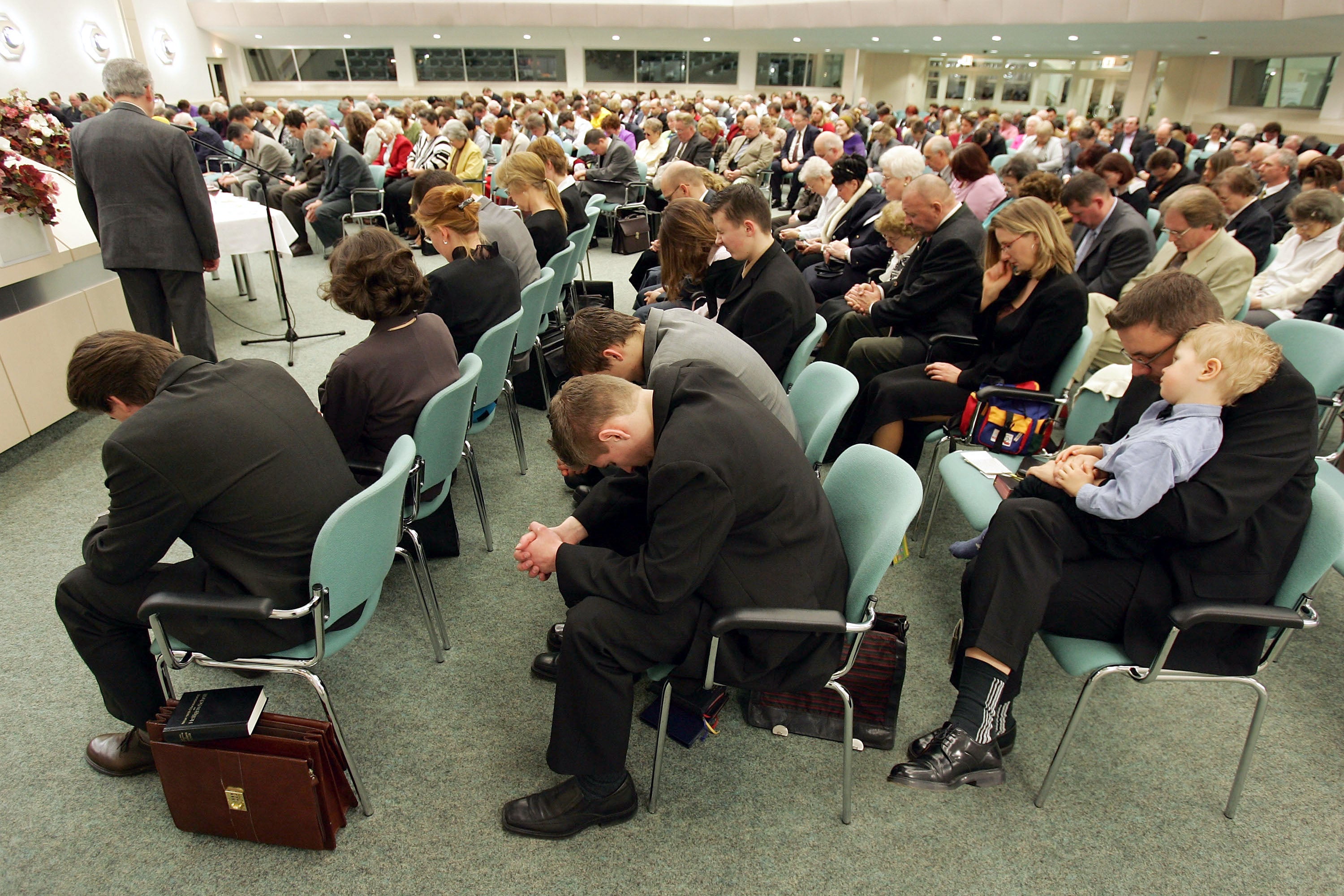‘She had little black patent shoes on’ – justice for sexual abuse survivors in religious organisations is overdue
Astonishingly, instead of going to the police, one survivor says the Jehovah’s Witnesses made her give evidence to two elders, on her own, without either of her parents present


Your support helps us to tell the story
From reproductive rights to climate change to Big Tech, The Independent is on the ground when the story is developing. Whether it's investigating the financials of Elon Musk's pro-Trump PAC or producing our latest documentary, 'The A Word', which shines a light on the American women fighting for reproductive rights, we know how important it is to parse out the facts from the messaging.
At such a critical moment in US history, we need reporters on the ground. Your donation allows us to keep sending journalists to speak to both sides of the story.
The Independent is trusted by Americans across the entire political spectrum. And unlike many other quality news outlets, we choose not to lock Americans out of our reporting and analysis with paywalls. We believe quality journalism should be available to everyone, paid for by those who can afford it.
Your support makes all the difference.Becky Armstrong-Corbett can’t be sure how old she was when she was first sexually abused, but she knows her feet didn’t reach the end of the chair, let alone touch the floor. Decades later, the memories of the abuse inflicted on her by a senior church leader are so painful she sometimes talks about what happened in the third person to try and distance herself from the details.
“Her feet only came to the edge of the chair. She had little black patent shoes on and she could see her face in those black patent shoes and she could see him behind her,” Armstrong-Corbett tells me on tonight’s Channel 4 News.
The little girl in patent shoes was, until she was 12 years old, abused by an “elder” – a leader – at the Kingdom Hall, the place of worship used by Jehovah’s Witnesses.
“He had a massive big Bible and he would sit forward and there was a gap in the chair and he would pull my clothes up through that, leaning forward. I can very clearly remember the first time it happened: I fidgeted and I was taken outside and smacked ... And this happened until it got to a stage where the smacking was so hard I can remember not knowing whether I could breathe,” she recalls.
Eventually, aged 12, Armstrong-Corbett told her parents what had been going on, and they informed senior Jehovah’s Witnesses. Astonishingly, instead of going to the police, she says the organisation made her give evidence to two elders, on her own, without either of her parents present.
Armstrong-Corbett’s abuser was convicted of nine counts of sexual assault in 2017, decades after the abuse took place. She is one of many abuse survivors to submit her evidence to the Independent Inquiry into Child Sexual Abuse (IICSA).
Today, the inquiry published a report saying there were “shocking failings” and “blatant hypocrisy” in the way religious groups handled abuse allegations. Leaders of 38 groups – from Christian and Islamic sects to Orthodox Judaism – discouraged reporting abuse to protect their reputations.
The years of delay in seeking and securing justice took a terrible toll on victims such as Armstrong-Corbett. When I ask her what difference it would have made to her life had it been reported to the police earlier, she again lapses into the third person. “That’s when I get emotional because I don’t know the full extent of how beautiful she might have been and how different her life might have been,” she tells me.
“If I’d have just had help, then I’d have been a different mother. I wouldn’t have had severe mental health difficulties; it would have made all the difference in the world – and I would have probably put a stop to self-harming at 12, instead of carrying it on and ultimately ... trying to take my own life.”
It’s a heartbreaking story, and sadly one that’s echoed in different circumstances by countless others. Given the scale of the organisation – there are nearly 9 million Jehovah’s Witnesses globally, and one and a half thousand congregations in England and Wales alone – survivors fear many instances of abuse go unreported.
It’s a religion that teaches its followers they’re God’s “chosen people”, and that outsiders are controlled by Satan. Inevitably, that – coupled with a belief they’re answerable only to God – breeds a deep mistrust of external authority.
We put the allegations in our report to the Jehovah’s Witnesses. In a statement, they said the protection of children “is of the utmost concern and importance to all Jehovah’s Witnesses” and that they would “carefully and respectfully consider” all the observations and recommendations in the IICSA report.
Survivors are adamant the only way to protect other children in the faith is for religious organisations to have a legal duty to report allegations of child abuse to the police.
Britain currently lags the rest of the world on this. According to the campaign group Mandate Now, 80 per cent of the world’s jurisdictions have some form of mandatory reporting, but in the UK if a teacher, doctor or vicar receives a disclosure of abuse, there is no absolute obligation for them to tell the police. There’s guidance advising the likes of teachers, but no cast-iron consequences if people in a position of authority fail to report.
The Archbishop of Canterbury Justin Welby, who’s spoken of his “shame and horror” at the way the Church has handled abuse allegations, told the inquiry in 2019 that he backed changing the law.
So why the wait? There’s speculation the inquiry will recommend mandatory reporting when it releases its final report, expected in the spring. For the little girl in black patent shoes, and other survivors trying painfully to rebuild their lives, that’s already decades overdue.
Cathy Newman presents Channel 4 News on weekdays at 7pm
Join our commenting forum
Join thought-provoking conversations, follow other Independent readers and see their replies
Comments